Undergraduate Courses
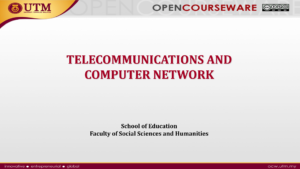
Telecommunications and Computer Network (SPPP1032)
This is an introductory course in telecommunications and computer network. It provides the foundation for telecommunications technologies, Internet applications & infrastructures, data communications, computer hardware and software, network topology and design of networking applications in organizations and networks management. Students will be introduced to the LANs, WANs, ethical issues related to web resources and computer component for recycle or as e-waste. At the end of the course students should be able to demonstrate their understandings by using Internet applications for teaching and learning, awareness of Internet Ethical and Social Issues related to web resources and distinguish computer component that can be recycle or consider as e-waste. In addition, students will gain practical experience by studying a physical network using various networking applications.
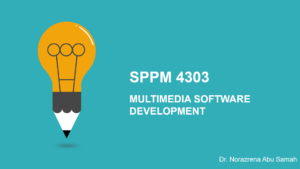
Multimedia Software Development (SPPM4303)
This course gives exposure to the students on developing multimedia software based on a specific learning content or subject for teaching and learning in schools. The multimedia project placed an emphasis on the interface design, the instructional design; using storyboard or scripts, graphic production, animation, audio as well as materials in the form of video, those developed using software such as Adobe Flash and Adobe Dreamweaver. The multimedia development project requires students to be able to apply the skills they acquired in previous multimedia-related subjects.
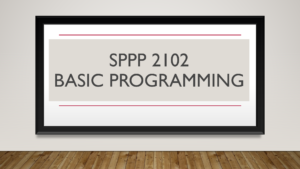
Basic Programming (SPPP2102)
This course introduces students to basic programming language and problem solving technique. At the beginning of the course, students will be exposed to programming terminologies, followed by phases of programming development and programming concepts (such as compiling, translating and editing). This course will provide practice in designing program using design tools (pseudo and flowchart). Several ways of solving problems will also be discussed. Advanced programming concepts (include selection, looping, function and array) will be explained using high level programming syntax. At the end of the course, student should be able to apply the knowledge and skill by developing program using selected programming software.
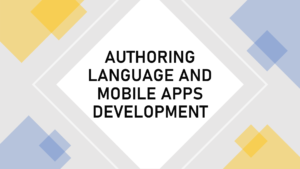
Authoring Language and Mobile Apps Development (SPPP2333)
This course offers students with a comprehensive experience in developing an interactive digital learning object and mobile application. Topics covered are basic programming and authoring languages, the use of interaction, information and visual architecture and development procedure. This course also emphasizes on the project management, technical issues (concerning the design, testing and distribution), the end format and the evaluation process. After completing the course, the students are expected to apply their knowledge, skills and experiences in developing a highly-presentable interactive digital learning object and mobile application, especially for teaching and learning
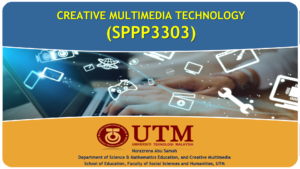
Creative Multimedia Technology (SHPP3303)
This course gives exposure to students about theory and basic concept of digital graphic, animation, audio and video. Students will learn about the main concept for each element and how to use it appropriately in developing multimedia applications and websites. Students will be guided on how to use various techniques to create high quality multimedia elements using current digital graphic, animation, audio and video software. This course also stress on combination of multimedia elements in creating effective and high quality teaching materials.
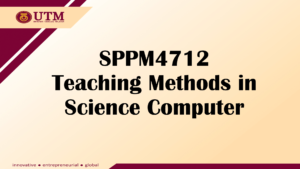
Teaching Methods in Science Computer (SHPP3303)
Overview of government initiative on implementing computer and the used of ICT in school, not limited to teaching and learning but in management as a whole. How computer technology affected our job market, the school education system and our way of life. This course will discuss the role of computers and their application in the teaching and learning process using a variety of techniques and methods of delivery in large, small or individual through interesting approaches like active approach, collaborative, cooperative and CAL. Among the major topics to be emphasized is the design of computer science laboratories, the use of the latest telecommunications technology in teaching and learning, 21st Century learning, the concept of a borderless classroom and writing lesson plans. At the end of the course, students must produce a preparation of lesson plans and learning modules as well as carry out the micro-teaching process in selected topics of Computer Science.

